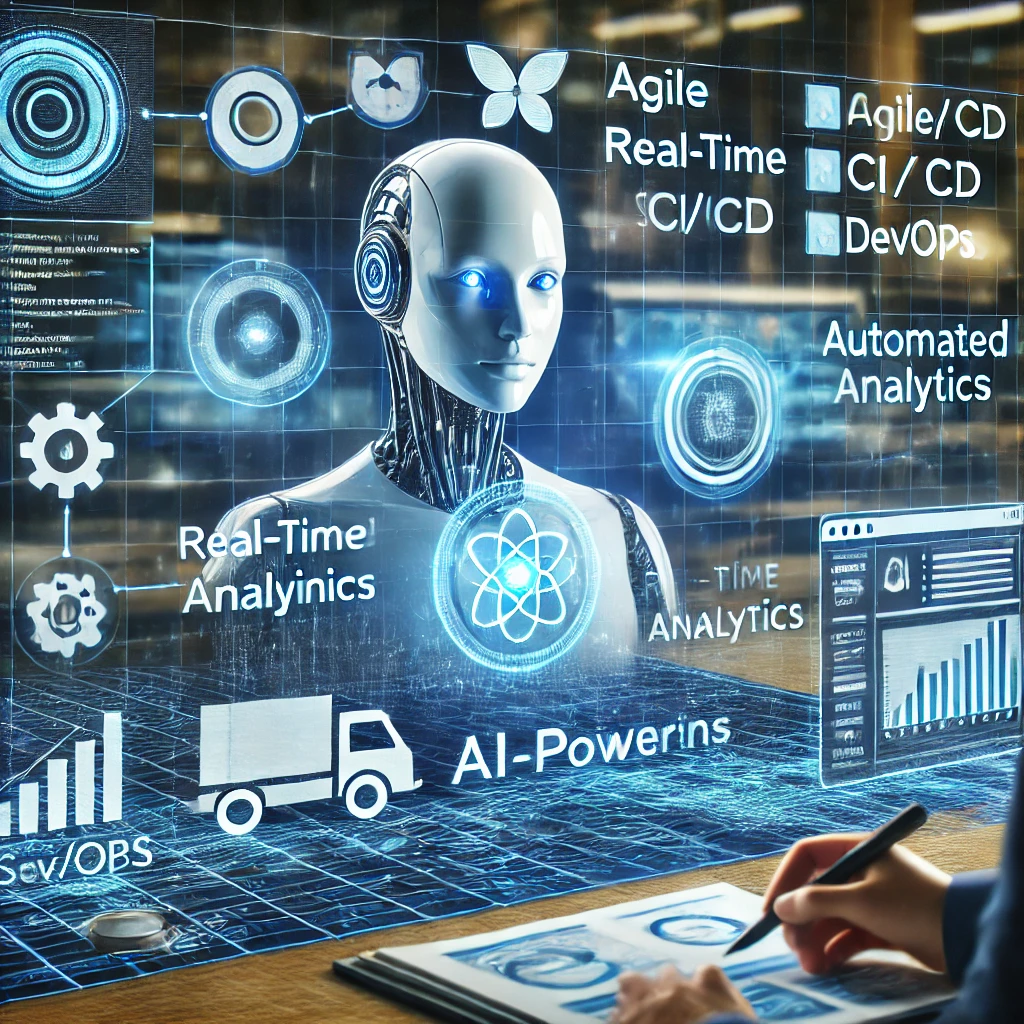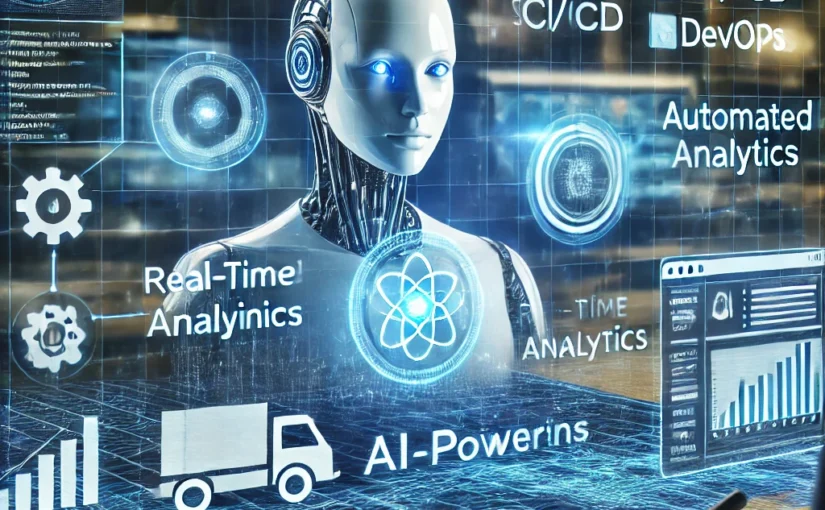Agile and DevOps have already revolutionized software development. But what happens when AI enters the picture?
From automating CI/CD pipelines to predicting project bottlenecks, AI-powered development agents are making Agile and DevOps even faster, more efficient, and smarter. But how exactly are they changing the way teams work? And do they improve collaboration, or are they just another layer of complexity?

🚀 The Role of AI in Agile & DevOps
Agile focuses on rapid iteration, adaptability, and collaboration. DevOps emphasizes continuous integration and continuous delivery (CI/CD). AI enhances both by:
✅ Automating Repetitive Tasks – AI handles code reviews, testing, and deployment, freeing developers to focus on higher-level tasks.
✅ Enhancing Predictive Analytics – AI analyzes past sprints and delivery cycles to predict bottlenecks before they occur.
✅ Optimizing CI/CD Pipelines – AI fine-tunes automation workflows, reducing deployment failures and improving efficiency.
✅ Improving Incident Detection & Response – AI-powered monitoring tools detect anomalies and suggest fixes before issues escalate.
But what does this actually look like in practice?
🔄 AI’s Impact on Agile Workflows
📌 1. Smarter Sprint Planning
AI can analyze past sprint data, developer velocity, and backlog trends to help teams plan more realistic iterations.
🔹 How AI Helps:
- Predicts team capacity based on workload history.
- Identifies high-risk tasks that may cause sprint delays.
- Suggests task prioritization based on historical performance.
Traditional sprint planning relies on intuition and past experiences. AI brings data-driven decision-making to the table.
🚀 2. AI-Powered Standups & Retrospectives
Standups and retrospectives are critical in Agile, but they often rely on subjective feedback. AI can provide objective insights by analyzing development trends and team performance.
🔹 How AI Helps:
- Summarizes key project updates from Jira, GitHub, and other tools.
- Detects blockers and risks before they derail progress.
- Analyzes team sentiment from communication channels to gauge morale.
Instead of just guessing why a sprint struggled, teams get real-time data-driven insights.
🛠️ 3. AI-Assisted Code Reviews
Code reviews can be slow and inconsistent, but AI tools speed them up by automatically checking for:
✅ Security vulnerabilities
✅ Performance bottlenecks
✅ Code style violations
✅ Potential logic errors
AI doesn’t replace human reviewers but acts as a preliminary filter, catching basic issues before a developer even submits a PR.
🔧 AI’s Impact on DevOps Workflows
⚡ 1. Automating CI/CD Pipelines
AI optimizes CI/CD pipelines by:
✅ Auto-scaling resources – AI detects high-demand periods and scales infrastructure accordingly.
✅ Reducing build failures – AI predicts which commits are most likely to break a build.
✅ Optimizing deployment timing – AI suggests the best time for releases based on usage patterns and historical failures.
Instead of relying on static automation rules, AI makes CI/CD workflows adaptive and self-improving.
🛡️ 2. AI-Driven Security & Compliance
AI helps DevSecOps by automatically scanning for security vulnerabilities and compliance violations in real time.
🔹 How AI Helps:
- Detects misconfigurations in cloud infrastructure.
- Identifies anomalous API calls that could signal an attack.
- Ensures compliance with industry standards (e.g., GDPR, HIPAA).
With AI, security isn’t just an afterthought—it’s continuously integrated into DevOps.
🔥 3. AI for Incident Management & Monitoring
AI-powered observability tools analyze logs, metrics, and traces to:
✅ Detect incidents before they impact users.
✅ Identify the root cause faster than traditional monitoring tools.
✅ Automate responses to minor issues without human intervention.
For example, AI can predict a system failure based on anomaly detection and automatically scale resources to prevent downtime.
⚖️ Challenges of AI in Agile & DevOps
Even with all its benefits, AI adoption in Agile and DevOps isn’t without challenges:
❌ Over-Reliance on AI: Teams must avoid blindly trusting AI-generated insights.
❌ Integration Complexity: Not all AI tools integrate smoothly with existing workflows.
❌ Data Privacy & Security Risks: AI-driven analytics require access to sensitive data, which must be protected.
The key is balance—AI should enhance human decision-making, not replace it.
🔮 The Future: AI as a DevOps Team Member?
As AI continues to evolve, it’s becoming more than just a tool—it’s acting as a virtual team member that automates tasks, provides insights, and prevents failures before they happen.
🔹 Will we ever have fully autonomous DevOps teams?
🔹 Can AI replace Agile coaches or product managers?
🔹 What’s the limit of AI’s role in software development?
One thing is clear: teams that embrace AI-powered automation will deliver software faster, more efficiently, and with fewer errors.
💡 Final Thoughts
AI is not replacing Agile and DevOps teams—it’s making them smarter. By automating repetitive tasks, predicting risks, and optimizing workflows, AI is turning Agile and DevOps into self-improving, data-driven ecosystems.
But the real winners will be those who know how to balance AI’s efficiency with human intuition.
What do you think? Will AI become a core part of every Agile and DevOps team, or are there limits to what it can do? Let’s discuss!
